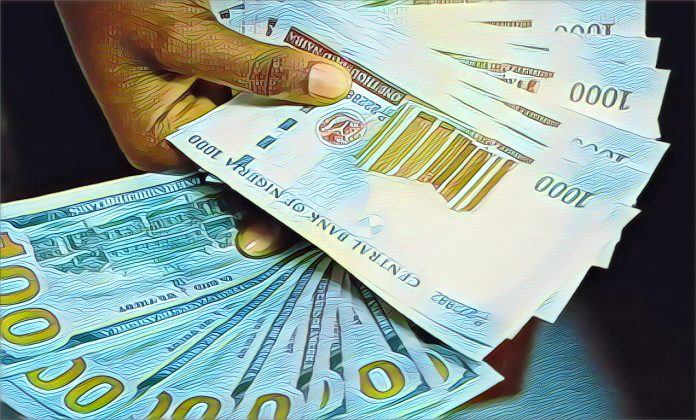The Nigerian currency, the naira, has appreciated against the US dollar in the peer-to-peer (P2P) market as more Nigerians embrace the alternative platform for foreign exchange transactions. According to data from Nairametrics, the naira traded at N1113 per dollar on October 27, 2023, gaining 1.8% from N1133 per dollar on October 20, 2023.
The P2P market is a decentralized platform that connects buyers and sellers of foreign currencies directly, without intermediaries such as banks or bureaux de change. The platform allows users to negotiate their own exchange rates and settle transactions through various payment methods. Some popular P2P platforms in Nigeria include Paxful, LocalBitcoins, Remitano, and Binance.
The P2P market has gained popularity in Nigeria since the Central Bank of Nigeria (CBN) banned banks and other financial institutions from facilitating cryptocurrency-related transactions in February 2021. The ban prompted many Nigerians to switch to P2P platforms to buy and sell cryptocurrencies, as well as other foreign currencies. According to a report by Chainalysis, Nigeria ranked third in the world in terms of cryptocurrency adoption in 2021, behind Vietnam and India.
The P2P market has also benefited from the persistent scarcity of foreign exchange in the official and parallel markets, as well as the wide gap between the exchange rates in these markets. The CBN has been struggling to meet the demand for foreign exchange from importers, manufacturers, students, and other users due to low oil prices, declining foreign reserves, and weak economic growth. As a result, the naira has depreciated significantly against the dollar in both the official and parallel markets.
According to data from the CBN, the official exchange rate stood at N768.6 per dollar on October 27, 2023, while the parallel market rate was N873 per dollar on the same day. This implies a gap of N104.4 or 12% between the two rates. The P2P market rate of N1113 per dollar was closer to the official rate than the parallel rate, indicating a lower premium for foreign exchange users.
The P2P market is expected to grow in Nigeria as more people seek alternative ways to access foreign exchange at competitive rates. The market also offers more transparency, flexibility, and convenience for users compared to the official and parallel markets. However, the market also faces challenges, such as security risks, regulatory uncertainty, and limited awareness among potential users.
The CBN has not issued any official statement on the P2P market, leaving its legal status unclear. Some analysts have suggested that the CBN should embrace the P2P market and regulate it as part of its efforts to improve foreign exchange liquidity and stability in the country. Others have argued that the CBN should focus on addressing the underlying issues that drive the demand for foreign exchange in Nigeria, such as improving productivity, diversification, and competitiveness.
The P2P market reflects the dynamism and resilience of Nigerians in finding solutions to their economic challenges. The market also offers an opportunity for innovation and inclusion in the financial sector, as well as a potential source of data and insights for policymakers and stakeholders.
Source: Nairametrics



